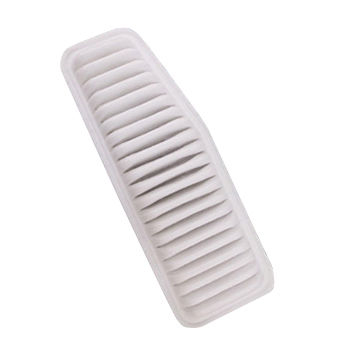Dec . 04, 2024 10:35 Back to list
f8 pocket filter material quotes
Understanding F8 Pocket Filter Material An Essential Component for Air Quality
In recent years, the significance of air quality has come to the forefront of environmental health discussions. With pollutants escalating in urban areas, the need for efficient air filtration systems has never been more pressing. Among the various filtration products available in the market, F8 pocket filters stand out due to their effective performance in capturing airborne particles. In this article, we will delve into the characteristics of F8 pocket filter material, exploring its benefits, applications, and the reasons behind its growing popularity.
What is an F8 Pocket Filter?
F8 pocket filters are a type of air filter classified by the European Standard EN 779. The 'F' designates a fine filter, and '8' refers to its particle retention efficiency, which ranges between 80% to 90% for airborne particles measuring between 0.4 to 0.6 microns. These filters are designed with multiple pockets, which not only increases the filtration surface area but also enhances their dirt-holding capacity. This design contributes to the long service life of the filters and minimizes the frequency of replacements.
Material Composition
F8 pocket filters are typically made from synthetic fibers or a combination of synthetic and glass fibers, providing a robust and efficient medium for trapping particles. The materials used in crafting these filters are crucial as they determine the effectiveness, durability, and energy efficiency of the filters. Synthetic fibers are popular choices due to their resistance to moisture and humidity, reducing the chances of mold and bacterial growth, which can compromise air quality.
Benefits of F8 Pocket Filters
1. High Efficiency F8 filters are designed to capture a wide range of particulate matter, including dust, pollen, mold spores, and pet dander. Their high filtration efficiency aids in creating a cleaner indoor environment, making them a suitable choice for various settings, including hospitals, offices, and manufacturing facilities.
f8 pocket filter material quotes

2. Extended Lifespan One of the most significant advantages of pocket filters is their longevity. Thanks to their superior dirt-holding capacity, F8 filters can last longer than traditional flat filters, which translates to lower replacement costs and less waste.
3. Reduced Energy Consumption Although the initial investment in an F8 pocket filter may be higher than that of lower-rated filters, their efficiency allows HVAC systems to operate more effectively. When filters resist clogging, the HVAC system doesn't have to work as hard, leading to lower energy consumption and reduced utility bills.
4. Versatile Applications F8 pocket filters are versatile and can be integrated into various air handling systems. They are particularly useful in environments requiring stringent air quality standards, such as pharmaceutical and food processing industries.
Key Considerations When Choosing F8 Pocket Filters
When selecting F8 pocket filters for your application, consider factors such as air flow rates, filter dimensions, and specific filtration requirements. Additionally, it's important to assess the ambient conditions where the filters will be utilized, including the type of pollutants present and the overall system design.
Regular maintenance and timely replacement of these filters are essential to ensure optimal performance. Monitoring pressure drops across the filter will provide insights into its condition and help in deciding when a replacement is due.
Conclusion
F8 pocket filter material plays a vital role in maintaining indoor air quality by effectively trapping airborne pollutants. With their high efficiency, extended lifespan, and energy-saving benefits, they are an excellent investment for both residential and industrial applications. As we continue to prioritize health and environmental concerns, understanding the importance of such filtration systems becomes imperative. By choosing the right air filters, we can all contribute to a healthier and cleaner environment.
-
Active Carbon Air Filter for Air Purifier – Superior Odor & Allergen Removal
NewsJul.24,2025
-
High-Efficiency Active Carbon Air Filter for Air Purifier | Odor & Allergen Removal
NewsJul.23,2025
-
Active Carbon Air Filter for Air Purifier – High Efficiency Filtration Solution
NewsJul.22,2025
-
Durable Sintered Porous Metal Filter Tube Cup & Machines
NewsJul.22,2025
-
Effective Active Carbon Air Filter for Purifiers | Eliminate Odors
NewsJul.21,2025
-
PLJT-250-25 Full-auto Turntable Clipping Machine | Efficient Automation
NewsJul.20,2025
